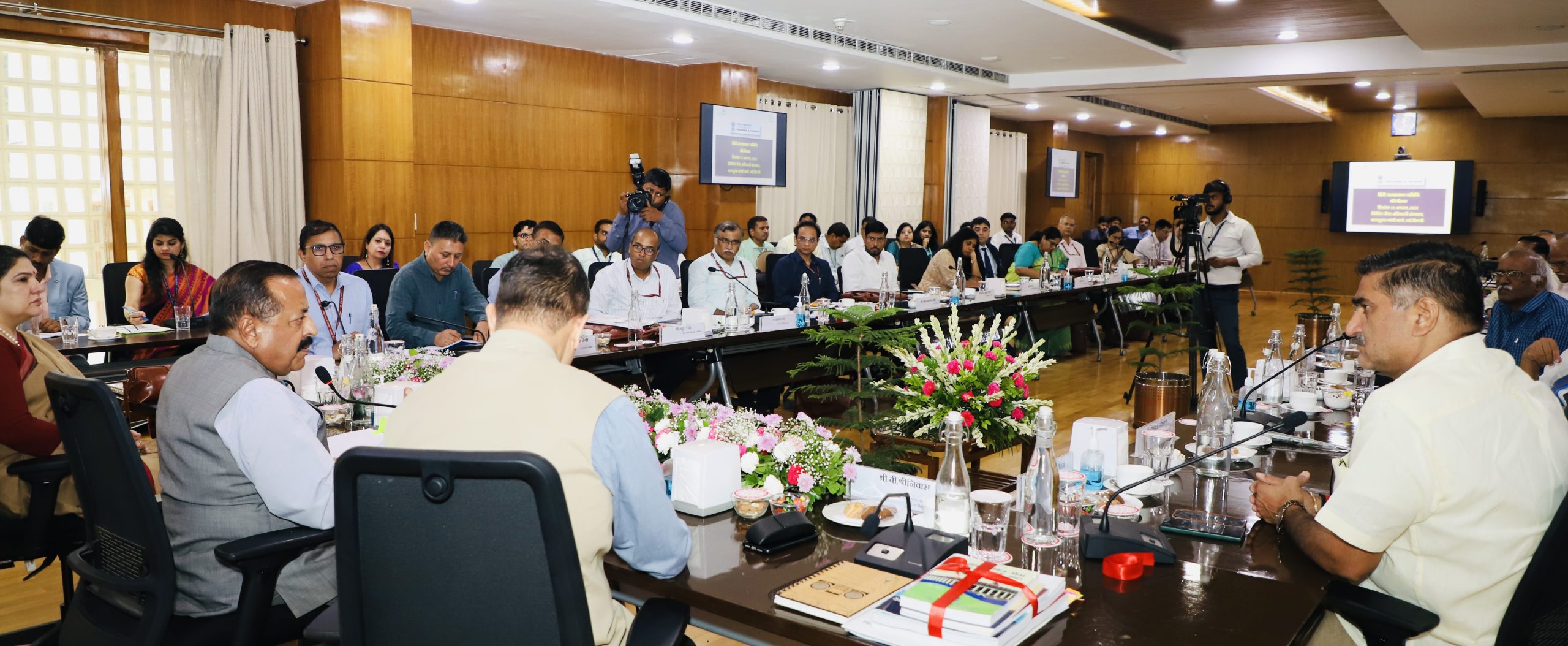
NEW DELHI, August 16 : It has been recently decided to conduct the Central government job test in 15 Indian languages so that the language barrier does not let any youth miss the job opportunity. These will include different regional languages including Kannada, Tamil, Telugu, Assamese, Bengali,Gujarati, Konkani, Malayalam, Manipuri, Marathi, Odia, Punjabi and Urdu.
This was stated here today by Union Minister of State (Independent Charge) Science & Technology; MoS PMO, Personnel, Public Grievances, Pensions, Atomic Energy and Space, while addressing the 14th Hindi Consultative Committee meeting attached to the Ministry of Personnel, Public Grievances and Pensions.
The Minister lauded the efforts of the Staff Selection Commission (SSC) for arranging to conduct, for the first time, the Multi Tasking (Non-Technical) Staff examination in 13 regional languages in addition to Hindi and English.
Notable progress has been made in the last more than nine years under the leadership of Prime Minister Narendra Modi to promote the Indian regional languages besides the official Language Hindi, said Union Minister Dr Jitendra Singh in New Delhi today.
This historic decision will give impetus to participation of local youth and encourage regional languages, said the Minister.
In addition to Hindi and English, the question paper will be set in the 13 regional languages i.e. Assamese, Bengali, Gujarati, Marathi, Malayalam, Kannada, Tamil, Telugu, Odia, Urdu, Punjabi, Manipuri (also Meiti) and Konkani, he said.
The decision will result in lakhs of aspirants taking part in the examination in their mother tongue/regional language and improve their selection prospects.
Notable progress has been made in the last more than nine years under the leadership of Prime Minister Narendra Modi to promote the Indian regional languages besides the official Language Hindi, said Union Minister Dr Jitendra Singh in New Delhi today.
There had been persistent demands from different States to hold SSC exams in languages other than English and Hindi. Government appointed an Expert Committee to look at this aspect too amongst other things (review of scheme and syllabus of examinations conducted by the Commission).
“Though the policy was initiated with the Official Language Rules, 1976, significant progress has been made only in the last five-six years,” he said.
The DoPT Minister said the Staff Selection Commission recently unveiled the format for candidates to write their examination in 15 languages, plans are afoot to allow written tests in all 22 Scheduled Languages.
“In UPSC, there is still a dearth of higher studies subject books to allow but efforts are on in coordination with the HRD Ministry to promote specialized books in Indian languages. The first MBBS course in Hindi in the country was launched in October last year in Bhopal, Madhya Pradesh. And now Uttarakhand has become the second state to launch an MBBS programme in Hindi,” he said.
Calling for adoption of common terminology from English and other languages, Dr Jitendra Singh said Madhya Pradesh could take the lead in introducing medical education in Hindi by adopting words such as “nucleus” and “amoeba” verbatim rather than wasting time and resources in trying to cook up a translation.
Dr Jitendra Singh said the Prime Minister Narendra Modi has taken a very historic decision in the new National Education Policy (NEP) by giving importance to the Mother Tongue of students in Primary, Technical and Medical education.
“PM Modi has given a call to provide Medical and Engineering education in regional languages such as Hindi, Tamil, Telugu, Malayalam, Gujarati, Bengali. Medical education has commenced in Hindi and soon Engineering studies will also begin in Hindi and translation of Engineering books has commenced in eight languages across the country, and soon students across the Nation will be able to pursue Technical and Medical education in their mother tongue,” he said.
Dr Jitendra Singh said the Government introduced three pathbreaking bills in parliament during the recently concluded Monsoon session to replace the two centuries old criminal justice system, a legacy of the colonial era.
“The Indian Penal Code, 1860 will be replaced by the Bharatiya Nyaya Sanhita Bill, 2023, the Criminal Procedure Code, 1898 will be replaced by the Bharatiya Nagarik Suraksha Sanhita Bill, 2023 and the Indian Evidence Act, 1872 will be replaced by the Bharatiya Sakshya Bill, 2023,” he said.
Dr Jitendra Singh said more than 50 of over 300 training modules of the Mission Karmayogi Prarambh under the Integrated Government Online Training (iGOT) portal have been made available in Hindi. Its scope may be widened to include other Indian Languages, he said.
Calling for more frequent meetings of Hindi review committees in the Government Departments, Dr Jitendra Singh said, as we promote Hindi, other Indian Languages too would gain and prosper.
“Real impact would be felt as the mindset changes, resulting in social change,” he said.
On the occasion, Dr Jitendra Singh distributed awards and certificates of appreciation. He also released a book by Dr K C Ajay Kumar, a member of the Hindi Consultative Committee attached to the Ministry.

